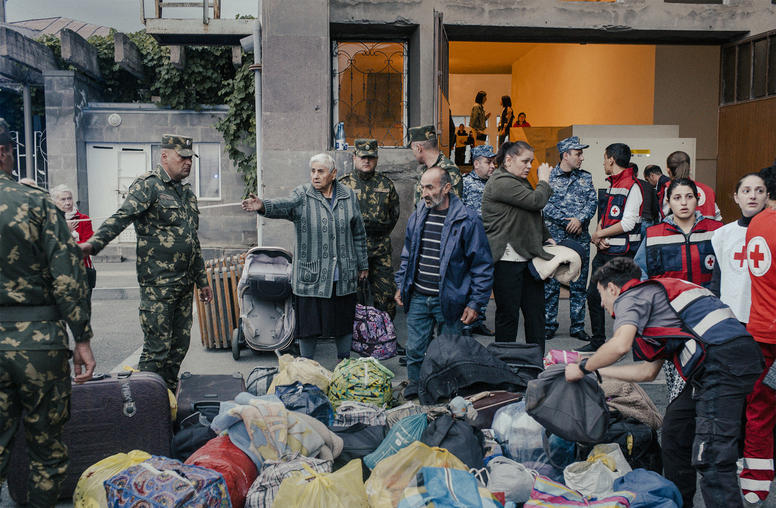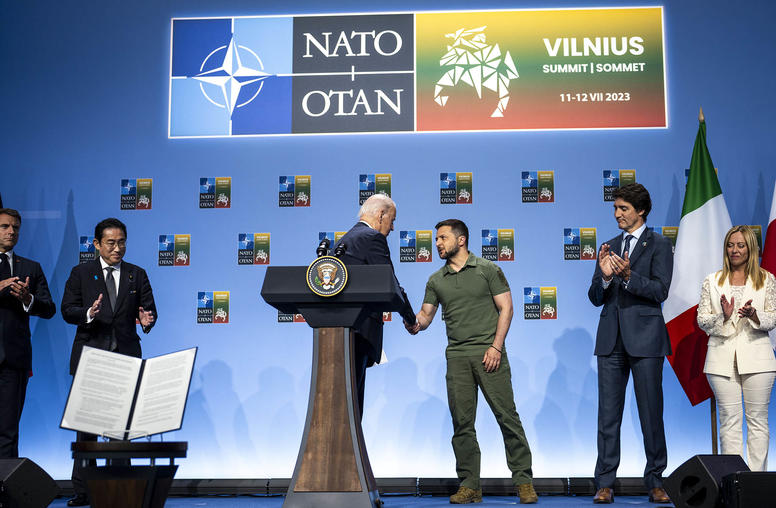What is Next for U.S.-Turkey Relations?
Eric Edelman and Jake Sullivan Weigh In
Relations between the United States and Turkey have come under increasing strain in the past two years over the U.S. role in Syria and Ankara’s strengthening ties with Russia. American support for Kurdish forces battling ISIS has angered Turkey, which sees the cooperation as bolstering Kurdish nationalist elements inside its borders. At the same time, U.S. policy makers are uneasy with arms deals that Turkey, a NATO ally, has made with Russia, such as its $2 billion purchase of S-400 surface-to-air missile systems. Ankara’s moves to scale back collaboration with the U.S., such as restrictions on American use of the Incirlik Air Base, are also cause for concern. USIP Board member Eric Edelman, a former U.S. ambassador to Turkey during the George W. Bush administration, and USIP International Advisory Council member Jake Sullivan, who served as Vice President Joe Biden’s national security adviser, provide some insight on the state of Turkish-American relations.
With Ankara working closely with Russia and Iran on a political resolution to the Syrian civil war, what avenues remain for cooperation for Ankara and Washington in Syria?
Jake Sullivan: From my perspective, Turkey will continue to play footsie with Russia and Iran on a political outcome. They’ll want to have a process that is not owned by Washington, that they’re a central part of and that will continue. But they fundamentally diverge from both Russia and Iran on the core question of Assad’s future and on what they actually want to see as a political resolution to the Syrian crisis. And therefore, the United States will continue to have the capacity to shape Turkish thinking, to engage with Turkey and to come to a better common understanding of what the political shape of Syria looks like in a post-conflict or reduced-conflict situation. In order to get there though, we and Ankara need to get to a better place in terms of our understanding of the Syrian-Kurdish issue and that should be priority number one for us.
Eric Edelman: Well, I think it’s important to have the Turks involved in whatever we do. They have to be part of any political solution. The problem I see is that the United States has been pursuing a Geneva Process that is moribund, while the Turks are making, I guess, accommodation to reality by working with Russians and Iranians, who seem more robust in their determination to be the arbiters of Syria’s future. I think only when the Turks see that the United States is going to actually play a role in that future can we get them back in the direction of involvement with us in the U.N. process rather than this Astana process that is being run by the Russians and the Iranians.
Although Turkey is a NATO member, it is increasing military cooperation with Moscow (such as a $2 billion deal to buy S-400 surface-to-air missile systems) and has scaled back collaboration with the U.S. (for example, by placing restrictions on Incirlik Air Base). Overall, Turkish-U.S. relations have soured since the 2016 coup attempt. How does the burgeoning Turkish-Russian relationship and the Ankara-Washington rift affect U.S. policy goals in Syria?
Jake Sullivan: Turkey is going to have relationships with all the significant powers in the world, including with Russia, but where the United States needs to have a better, more effective, more sustained dialogue with Turkey is on the question of when that cooperation gets in the way of effective military coordination within NATO. So, for example, the S-400 system, the anti-aircraft system that Russia is selling to Turkey, it is not operable with the air defenses of our NATO allies or with United States. This is not a positive development.
The U.S. should continue to work to try to show Turkey that going down the path it’s going down is going to start creating significant operational challenges, as well as political and diplomatic challenges, and that should happen on both the military level and the civilian level. Whether we can succeed in bringing Turkey back to a more reasonable place on this set of issues, to put some right and left limits around the extent and nature of their cooperation with Russia, I can’t say. But I think it’s our obligation to try to do so.
Eric Edelman: Turkey remains a NATO ally and that’s fundamental. The fact that they’re purchasing an air-defense system that is incompatible with NATO’s systems is going to be a major challenge, not just for the U.S.-Turkish relationship but for the alliance as a whole. So, that’s an issue that’s going to be worked out with the Turks. I know there’s still some hope in U.S. government circles that the Turks will think better of pursuing this deal and will work to procure a NATO-compatible system. That seems to me ought to be the right goal, and we’ll see whether we can get there or not.
The U.S. and Turkey have been at loggerheads over U.S. support for Syrian Kurdish rebels in northern Syria, but pledged in February to work together to address each country’s concern. How will Washington balance its relationship with Turkey and its Kurdish allies that have been critical in the fight against the Islamic State?
Jake Sullivan: The specifics on the issue of American support and partnership with the YPG [People’s Protection Units] are hard, but the general outlines are not as hard. I think if we can get those nailed down first, then we can turn to the more specific questions like the YPG being present in the Syrian town of Manbij. At a broader level, Turkey should accept that the United States is going to continue to work with, and provide support for, the YPG in an on-going fight to make sure that ISIS cannot re-take territory in eastern Syria. In return, the U.S. should give Turkey assurances that it will do everything in its power to make sure that its Syrian Kurdish partners are not posing a direct threat, a military threat, to Turkey itself.
And, second, I think that the United States has to say to Turkey: “It’s your job to reach out to TurkishKurds to try to get back to the table, to get back to diplomatic negotiations. For our part, we will work hard to separate the YPG and the PKK [Kurdistan Workers’ Party] and encourage Turkish-Kurdish diplomatic talks.” Third and finally, we need Turkey to recognize that at the end of the day, the Syrian Kurds need to have some confidence in their political future within a post-conflict Syria, and that they need to be reasonable about the level of autonomy that they’re prepared to accept, and we need to be transparent with the Turks about how we’re helping to address their ongoing concerns.
If you put those pieces together, alongside a continued fight against ISIS and a focus on the counter-terrorism mission in Syria, I think you have the makings of a potential way forward with Turkey. Not that it’s going to be easy; it’s going to be very hard, but that’s what we have to be focused on.
Eric Edelman: I think, for a number of years, going back to the outbreak of the Syrian civil war in 2011, the United States and Turkey have had a dialogue of the deaf. We have to have a much more serious, strategic conversation that talks about what Turkey’s interests are and what U.S. interests are—a very frank, private conversation—and then work towards ways that allow both sides to meet their minimum if not maximum goals.
For instance, the Turks say that they would like us to stop supporting the YPG but, in my view, it’s in Turkey’s interests for the United States to continue to be involved with the YPG in order to act as a restraining force in northeastern Syria. I think a frank conversation may help Turkey understand that that’s actually in their interest, not just something that is in our interest.
Clearly, Turks have concerns along their borders. Syria is their neighbor. They have 3 million Syrian refugees hosted in Turkish territory, which is a huge burden for them to bear. They clearly have important interests at stake too, and we ought to try and understand those better and accommodate them the best we can. That can only happen when we have a frank conversation and are not talking past one another as we have been for so much of the last five or six years.



